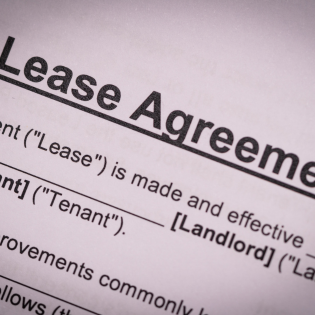Dealing with Travellers – A Guide for Landowners

Having groups of travellers set up on your land can be a frustrating and stressful experience not just for landowners but also for other members of the community such as local residents, businesses and visitors. For landowners operating recreational or tourist businesses, the presence of travellers can have a very direct impact on their business with many customers choosing to stay away. Before taking any action, it is essential to understand what the law says about what you can and can’t do to solve the problem. In this article, we take a closer look at some of the most common questions we hear from landowners.
Q: A group of travellers have moved their cars and caravans onto my field and set up camp without my permission. How can I get them to move off my land?
A: In the first instance, you could simply tell the travellers that they are trespassing on private land and ask them to leave. They may just refuse to go however, in which case there are other options available.
You could contact your local authority, which has powers under the Criminal Justice and Public Order Act 1994 to direct unauthorised trespassers to leave land and to remove any vehicles or other property they have on the land. If the travellers don’t move or return to the land within three months, then they have committed a criminal offence and can be fined up to £1,000.
Your local police force has similar powers where the trespassers have caused damage, been abusive or there are six or more vehicles on the land. If the travellers refuse to leave when requested to by the police, or return within three months, they could face up to three months’ imprisonment and/or a fine of up to £2,500, or both.
The police may be prepared to assist by talking to the travellers in the first instance and trying to persuade them to leave. In practice, the police and local authority are, in most cases, reluctant to become involved unless the trespassers’ presence is causing a nuisance to the surrounding community. If the police or your local authority are not prepared to help, then your only option is to seek a possession order through the courts.
Q: How do I get a possession order?
A: There are two ways of obtaining possession of land through the court. The first is using the interim possession order procedure. This provides a potentially speedier method of recovering possession than ordinary possession proceedings and is backed up by criminal sanctions including a power of arrest. Unfortunately, this process can only be used to get trespassers off land when it is ancillary to a building. It couldn’t be used therefore to remove travellers from open land where the primary use is the land or there are no buildings.
The second method is to apply to the court for an order for possession. This is a straightforward procedure but depending on any delays at your local court and when the travellers leave in the process, it can be expensive and take some months to complete.
Although you are not obliged to, it is advisable to instruct a Solicitor to help you draft the documentation that needs to go to the court and arrange for service of that documentation. It is important that these two matters are done correctly if you are to be successful in obtaining your order for possession, and using an experienced solicitor will help you to process the matter as quickly as possible.
Q: I don’t know who these people are, so who do I apply for an order against?
A: You don’t need to know the name of the travellers, and in most cases it is unlikely that you will. A possession claim can be issued in these circumstances against “persons unknown”.
Q: Won’t going to court for a possession order be expensive? Can’t I just remove them myself?
A: While court action could cost you anywhere between £2,000 and £2,500 plus expenses and VAT (if the claim is not defended), the result is more certain, and you will have a court order that you can use to both remove the travellers and prevent them from returning at a later date.
If land is open i.e. you are not evicting from a building, you have the right to recover possession from persons who have entered it without permission using “reasonable force”. It is generally unwise and dangerous, however, to try to evict people yourself. They may be violent towards you or may even claim that you have used more than “reasonable force” against them. If they can prove this, they may be able to claim money in the form of damages from you. To avoid this risk, you may consider instructing certified bailiffs to carry out this task for you. It is always wise, whoever is conducting the eviction, to notify the police of the date and time when it will take place and ask them to be present, or on stand by, in case of problems.
Q: How can I stop travellers entering my land in the first place?
A: You can take simple precautions such as ensuring that all gates and other access points to your land are secured and any gates, fences and hedges are in good order. Unfortunately, this will not prevent all travellers from entering your land as some will break or cut through locks and knock down fences.
You may therefore consider putting height and width barriers over all access points to your land. Width barriers should be placed at an angle. This prevents caravans, which need more space than cars and vans to turn, entering your land. Be careful to ensure that any barriers you intend to install do not contravene any planning or traffic regulations affecting that access to your land – it may be advisable to consult a solicitor or planning officer prior to proceeding to ensure that everything is in order. In particular, be aware of public footpaths and bridleways.
An alternative would be to dig a ditch around the land or put a small bund of soil around the perimeter (again, you may need planning permission to do this in certain circumstances). Alternatively, if it is appropriate you may wish to consider placing large boulders or structures strategically or keep your land ploughed.
The Ministry of Housing, Communities and Local Government (MHCLG) have published guidance and a summary of the available powers to tackle the formation of illegal and unauthorised camp sites and help the reclamation of land and property. Further details may be found at MHCLG: Guidance, Dealing with illegal and unauthorised encampments.
Caroline Gumbrell has twenty years’ experience in the agricultural sector and in resolving disputes concerning land and property. If you need advice or assistance with the removal of travellers or any other question concerning land or property please call Caroline for a free, no obligation chat on 01691655060 ext 8.







